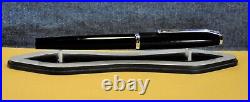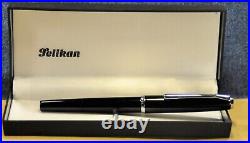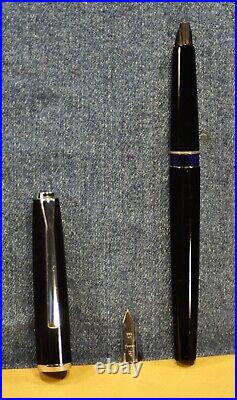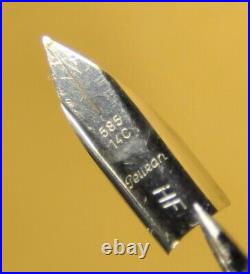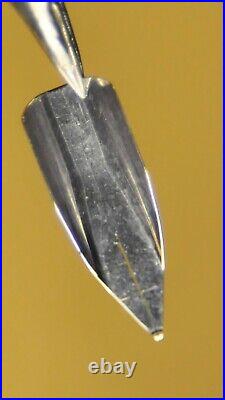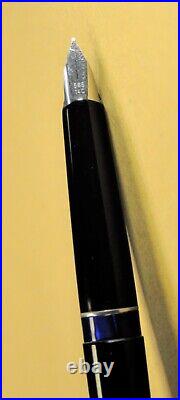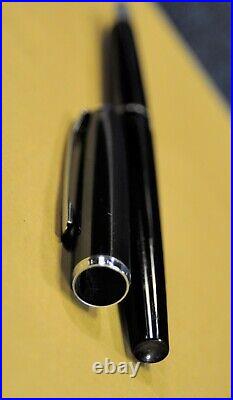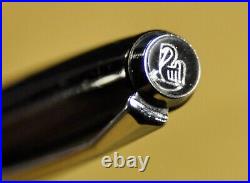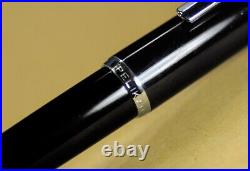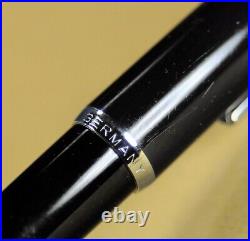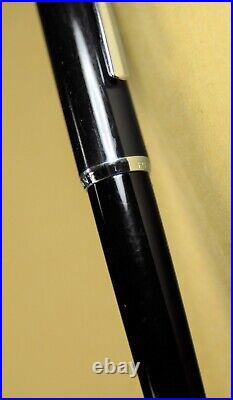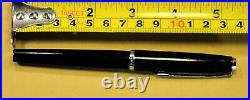












In 1863’s Günther Wagner, a chemist, became partner in a business founded by Carl Hornemann. In 1878’s Wagner added the name “Pelikan” from one of the elements in his family crest: a pelican feeding four chicks in its nest. The Pelikan factory produced ink, paints, glue, type writer ribbons, stencils, stamp pads and carbon paper. In 1929’s the first fountain pen was launched: the “Pelikan 100″, a piston filler designed by the engineers Theodor Kovacs and Carola Bako. In the 1930’s the 100 series were remodelled and the letter N (for “new”) was added. During WWII gold was hard to obtain and nibs of chromium/nickel-plated steel were produced, so-called CN nibs. In the 1950’s the clip got redesigned in the shape of a pelican beak. After Wagner’s retirement his son-in-law and successor Fritz Beindorff led the company to become one of the world’s leading makers of fountain pens. In the 1970’s Pelikan Schoolpens, together with those of Geha were the most popular pens in Germany. Pelikan M4xx – Japan models. All these models can be operated with cartridges or converter. Surprisingly, the model numbers all begin with M (= mechanics), which is usually used for piston filler. While P was used for cartridge fillers. We presume the reason for this type of numbering was that these were fitted with a converter by Pelikan. The Pen is in Good Overall. Condition w/Original hard case! On top of the Cap engraved – Pelikan logo. For more details please see the photos. They are part of the description. An excellent choice for everyday use! A Great addition to your.

Comments are closed.

